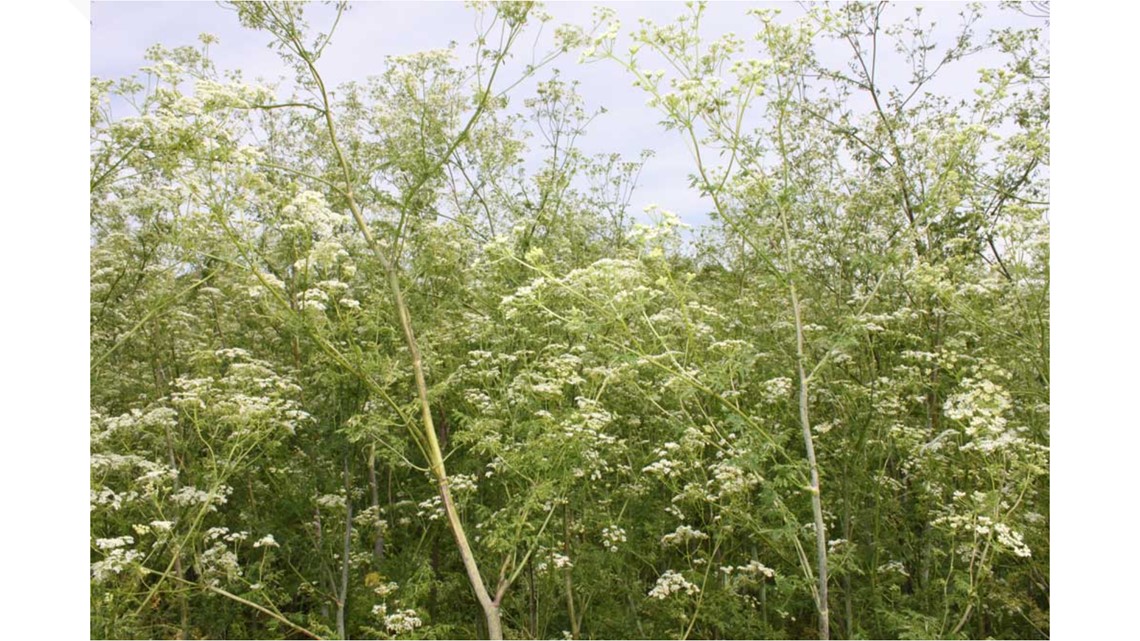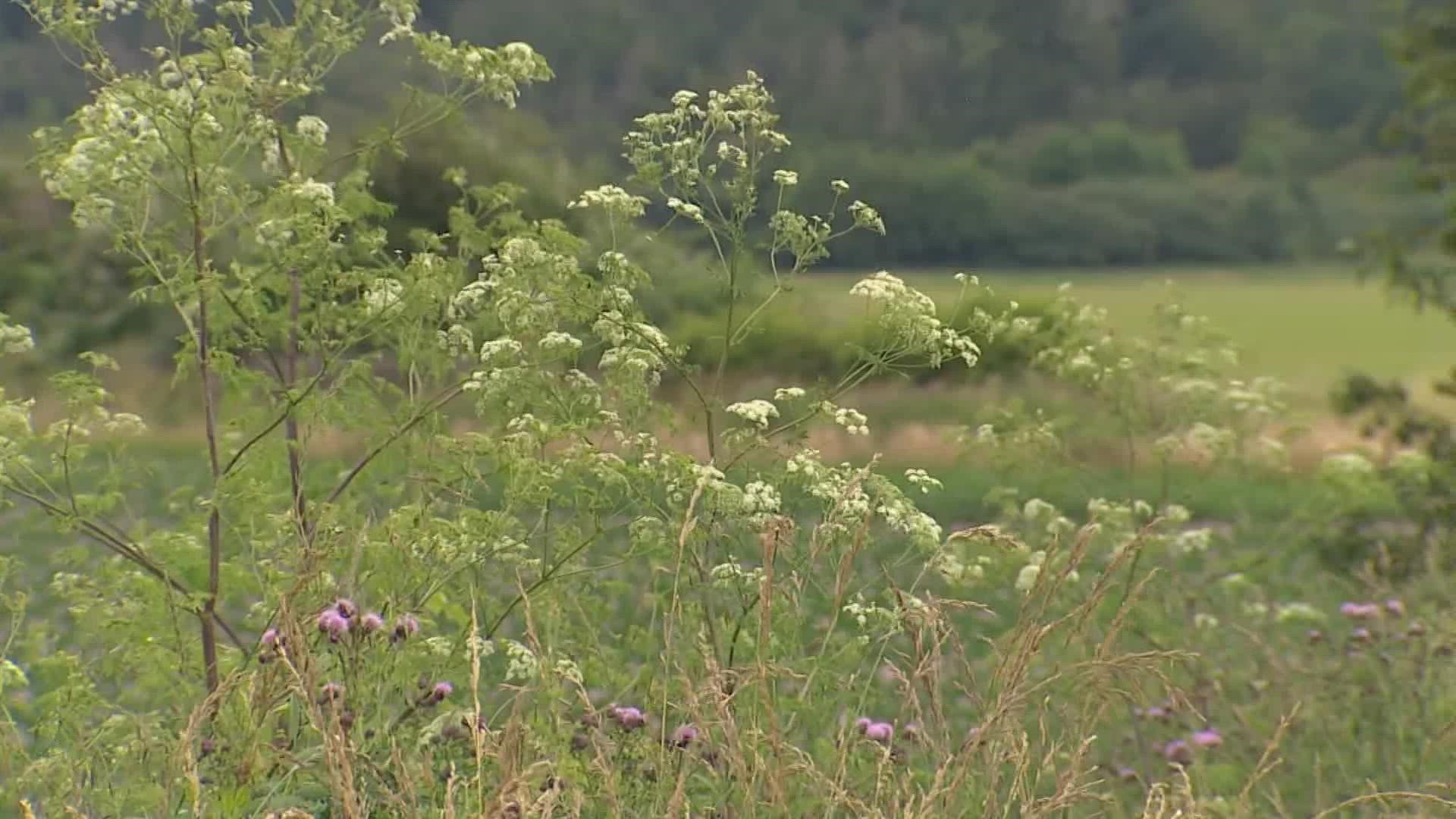SKAGIT COUNTY, Wash — Alongside the potato fields of Skagit County sits a plant so poisonous it can kill a thousand-pound cow in just a couple of hours.
So, imagine what it could do to a child or pet.
Poison hemlock is growing and spreading across Skagit County.
"It is really dangerous," said Joseph Shea, noxious weed coordinator for Skagit County. "It presents a big risk, especially in public places where people are walking."
The plant, which is identified by purple splotches on the stem, can cause painful rashes on the skin, and just a small amount is lethal if swallowed.
"Kids are kids; they’ll play around with things and ingest it," Shea said. "They can get sick real quickly and have some serious complications."
Many of those poisoned think hemlock is a harmless vegetable.
"Wild foragers will go out picking it thinking it’s a wild carrot or something else that's edible," said Shea. "Unfortunately, they’ll include it in their food and poison themselves or their family members."


That was the case for a Bellingham man who found the plant growing in his garden in 2010. He ended up in the ER.
That same year a Tacoma woman died after eating a salad that contained the weed.
Officials say poison hemlock has spread so quickly in Skagit County this year because our wet spring hampered the ability to spray herbicides. The county is also experiencing a post-pandemic worker shortage.
It is up to individual property owners to get rid of the weed. Skagit County can force people to remove it, but officials far prefer for people to do it on their own.
"Getting the community to help each other out is really, really important," Shea said. "Just make sure you put on a pair of gloves. You get down to the base as far as you can and pull. You should be able to get that whole taproot out."
People should put the plant in a garbage bag and take it to the dump, Shea said. Don’t mow, compost or burn it.

